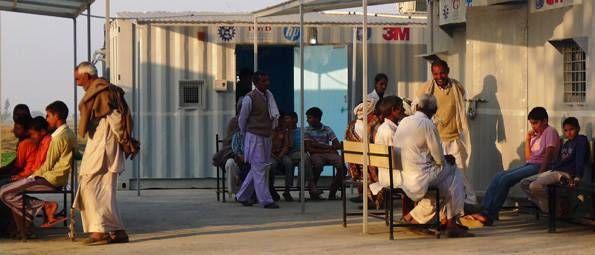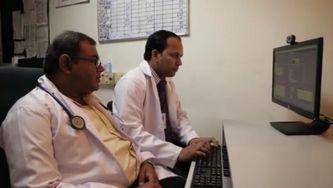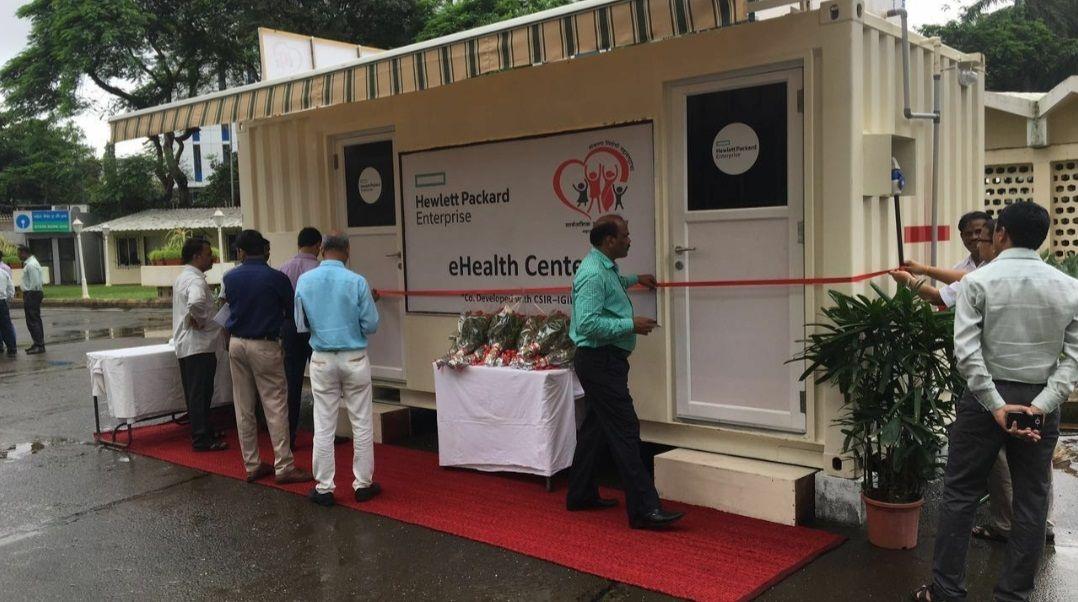eHealth Centers Improve the Rural Healthcare Crisis in India
Inadequate infrastructure, physician shortages, limited financing options, and untrained practitioners. These are some of the ailments blighting India’s healthcare system, where the demand for affordable access to health services is growing alongside an exploding population. Nearly 600 million people in India, mostly in rural areas, have little or no access to healthcare as 75% of the nation’s healthcare infrastructure is concentrated in urban areas where just one-quarter of the population lives.
Recognizing that technology has a significant role in addressing this void, Hewlett Packard Enterprise (HPE) is delivering a digital healthcare solution: cloud-computing enabled eHealth Centers that provide specialized healthcare in the most rural Indian communities and enable remote diagnoses from highly skilled medics hundreds of miles away. The affordable and rapidly deployable solution pairs online training materials for remote healthcare workers with diagnostic tools that capture vital statistics on a cloud-based application. Launched by Hewlett Packard Company in 2012, the program has now treated more than half a million patients across nearly 100 centers in 18 Indian states, and has launched additional centers in Bhutan and the Philippines.
This year HPE has already committed to launching five additional facilities. In February, HPE and the State Government of Uttarakhand signed an agreement to donate four eHealth Centers and one telemedicine studio in the state, which sits in one of the most treacherous and mountainous regions of India. Meanwhile, in the state of Maharsahtra, the government has requested HPE open a sixth center following the success of five deployed centers that have already benefitted over 10,000 patients. The new center is expected to benefit a population base of 9,000 additional villagers across 3 villages in and around Pachora.
In a country where non-communicable diseases, like cardiovascular and diabetes, account for more than 60% of all deaths, primary care is the first line of defense in preventing and treating conditions before they worsen. HPE’s innovative solutions enable intervention and treatment to communities that often lack accredited doctors, functional clinics, Internet access, or even electricity. The centers are quickly deployed at low cost directly into villages and under-privileged urban areas in refurbished shipping containers and are managed by local health authorities. Each comes fully equipped with key medical diagnostic equipment, open electronic medical records (EMR) systems and HPE cloud-enabled technology.
The HPE cloud solution also collects and analyzes data to further personalize the healthcare experience and facilitate community-wide health monitoring and management. As smartphones become ubiquitous and compute devices become more accessible to individuals, increasing amounts of data will make precision medicine possible – enabling the development of highly targeted diagnoses and treatments while reducing the need for medical specialists on-site. Even an epidemic outbreak or geo-specific ailments could be instantly identified thanks to real-time analytics, equipping policymakers with the insights to better shape healthcare policies.
By enabling these government and NGO programs with HPE technology, we can make access to healthcare possible anywhere in the world. Digital solutions like these have the potential to catalyze innovative models for delivering affordable care, eradicating disease, and providing equal access to the marginalized and underserved around the world.
Related links:
- Learn more about how HPE is harnessing technology for sustainable development at HPE Living Progress.
- Find out how HPE's Customer Experience Center in India is improving citizens' quality of life with IoT




